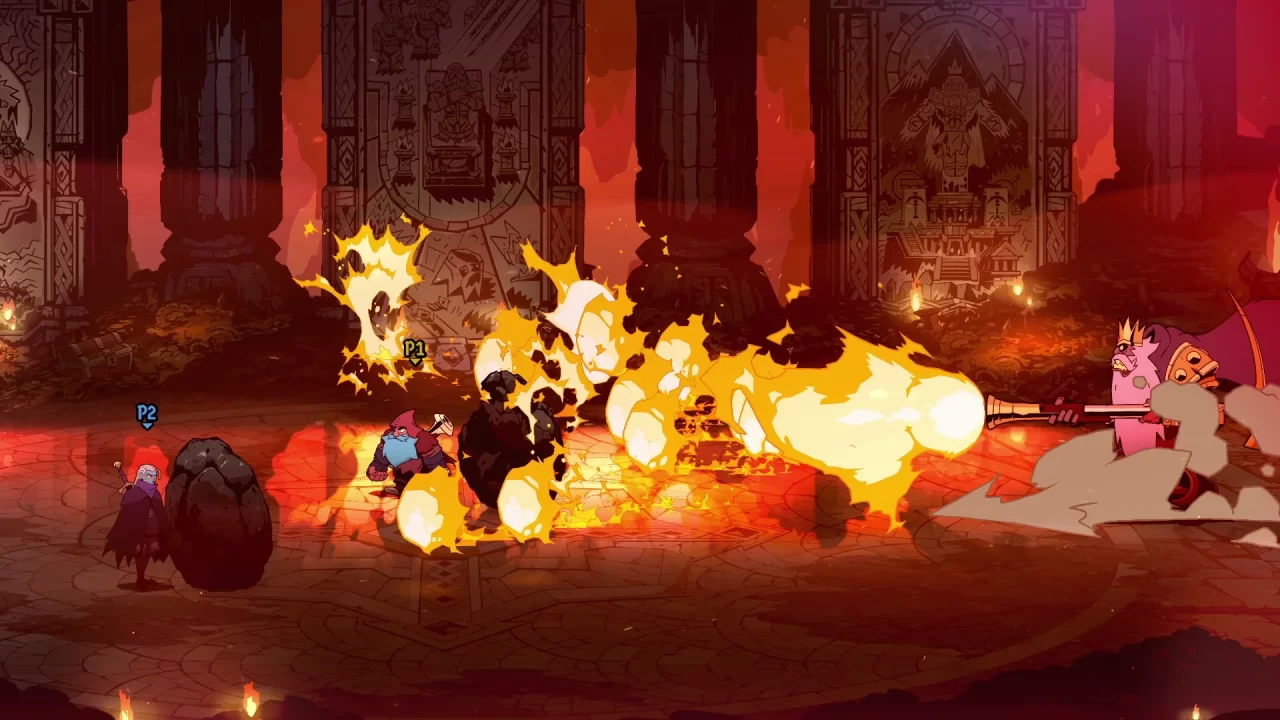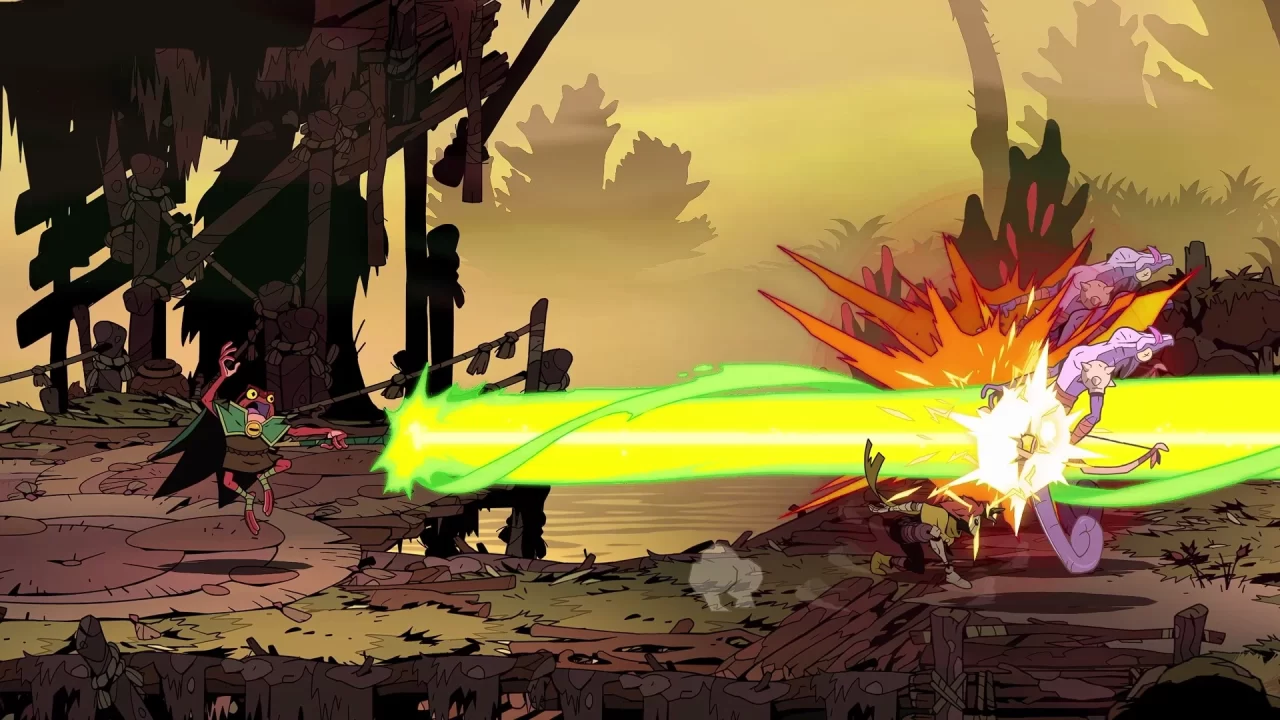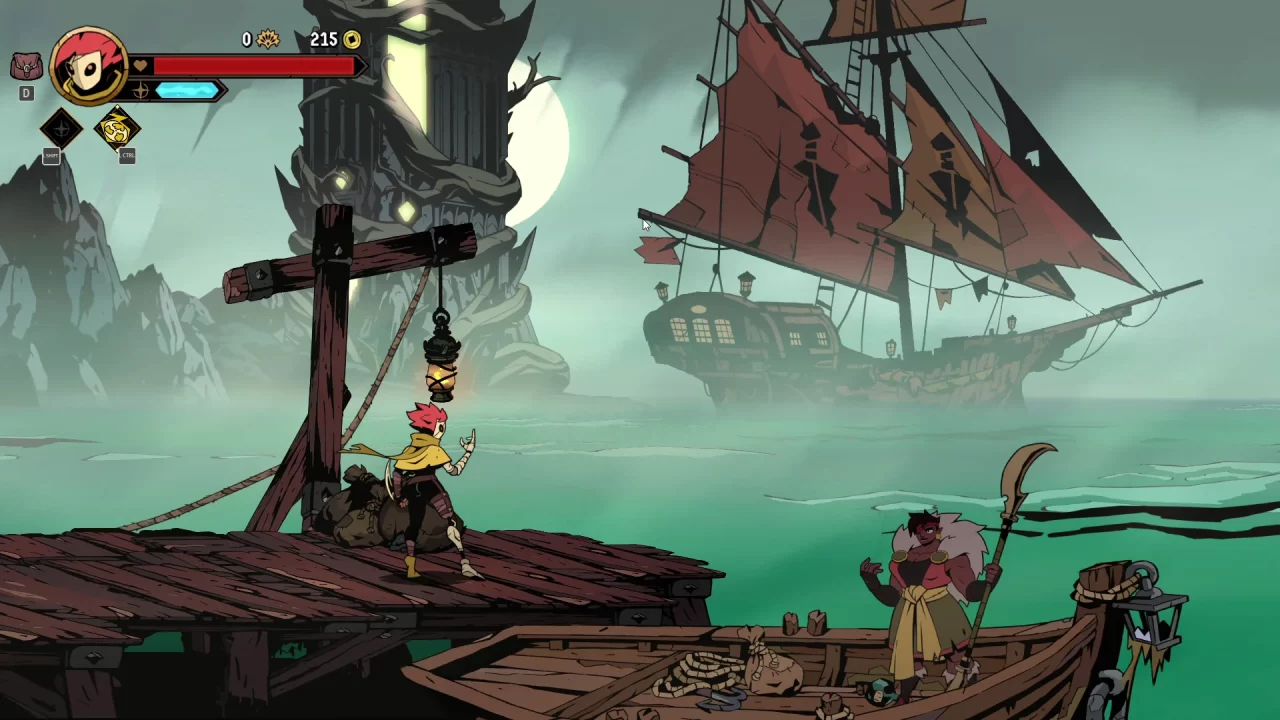Dotemu, game developer and publisher of some repute, has proven its design acumen with Streets of Rage 4, a game that breathed life into a beloved series thought dead and the beat ’em up genre as a whole. Fast forward to today, and we are staring at what is assuredly another hit: Absolum. While not the best game I’ve ever played, it’s certainly one of the best beat ‘em ups, and blends a roguelite design seamlessly into slaps, slashes, and slings.
An evil ruler, Azra, has enslaved wizards and claimed territories in much of Absolum‘s known world. Talamh, once a lavish place whose species and races lived in harmony, has been thrown into tumult by this wizardry. Persecuted to no end, a band of rebels now fights Azra in secret. It’s undoubtedly an uphill battle, and only through the grace of a goddess named Uchawi can they hope to topple the tyrant—that and through dying a lot.
In true roguelite fashion, we get stronger by failing runs and spending hard-fought currency on any number of buffs, whether they be new skills for any of the four characters available, passive buffs, or opportunities to earn new elemental skills during a run. Could one theoretically beat the game without buffs? Yeah. Sure. But that’s not what Absolum is about.
Uchawi herself celebrates our deaths, as this will make defeating Azra a near-certainty. How many deaths it takes depends on your fighting prowess, desire to preserve your pride, and ability to solve sidequests. Most side quests are sprinkled about over runs, making each adventure from home base to Azra a fresh experience. Routes fork and secret walls can be destroyed for goodies, but I imagine most players will fall into a habit of picking the same preferred path unless a sidequest draws their attention elsewhere.
For the most part, sidequests are pretty simple, with most simply requiring a return visit to a location. Each completion comes with dialogue from someone in town and exchanges with NPCs en route; nothing fancy, but enough to make one feel like they did something. Side quests are painstakingly obvious to find with the beautiful map and its nodes clearly identifying where to go, perhaps along with a subtle hint for how to solve them. On occasion, side quests come with some buff or opportunity for new treasures, making the extrinsic rewards just as exciting as the intrinsic.
Each location has different enemy types, with some prioritizing ranged attacks, teleportation, buffs after being damaged, shields, and so on. Depending on your playstyle, you may avoid one type altogether; this was true for me. You can decide to avoid a boss entirely, but that involves avoiding certain routes as well. In this way, Absolum can begin to feel repetitive after a handful of runs, but the frenetic combat continues to titillate, regardless. Playing as different characters can also freshen up the experience, and unlocking new abilities that use accrued mana can diversify runs, as well.
In essence, Absolum is a beat ‘em up with bells and whistles that keep the initial stages thrilling yet taper off over time. Surprises still occur, but with greater infrequency. The game’s competent in solo or duos, so fans of the genre won’t be left wanting. Each character plays starkly unique from the others, with some relying on close-range melee, another speed and hooking into enemies, and another greatly emphasizing ranged combat with special abilities.
Perhaps Absolum’s greatest asset is its art, with vibrant colors, tasteful lighting, and animations that pop off the screen smoothly. Text illuminates, menus flow intuitively, and backgrounds accentuate foregrounds, providing a sense of place. In addition, the music complements combat just fine with intense, orchestral percussion and horns that steal the show. Sorrowful ballads and adrenaline-infused beats appropriately pair with each scene and location. While some of these tunes may be worth listening to on your favorite music streaming service, no stand-out bangers graced my ears, except for maybe the credits theme after toppling that dastardly Azra.

Of particular note is the sound design. Beat ‘em ups are one of those genres—like first-person action games like Fight Knight—that greatly benefit from powerful thumps, crisp arrows, and sparkly spells. Hits have weight, foes go flying, and the whole acrobatic spectacle fuels a power fantasy. Unless, of course, you’re hitting enemies with shields. Hate those guys.
But wait, there’s more. After vanquishing the antagonist, prepare for more gameplay. Post-game content keeps the fingers tapping as players can venture into the world on new adventures, including encountering foes from all sorts of locations on seemingly any route. Skill trees max out at some point, as well, but currency can be spent on other niceties, like equipping a favorite trinket to enhance a preferred trait, though only for that run.
Absolum is what’s on the tin: a beat ‘em up with level progression, equipment, and spells. Runs can get samey, but Dotemu have done a commendable job of not overwhelming players, while adding just enough to runs to keep us from getting bored. Though not revolutionary, Absolum is worth any fan of the genre’s time.




